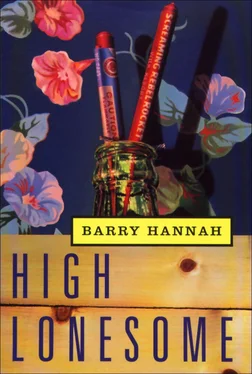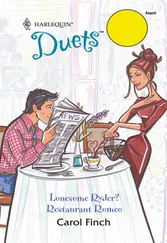At the school was a little man who had followed the civil rights struggle and written several books about it, a white man. He had a name and esteem, but in the hall I attacked him for being a civil rights junkie with his eye on the main chance, a part of the modern university industry where all the grants and prizes were. I accused him of living off the grief of better men. That he was a tick. At the end of this, with several students around, I began barking, No! No!
They let me go.
Amazing but that very afternoon I came across a stanza from Charles Simic that buried right into me, although I never read poetry. Simic had been on campus, a friend urged the book on me, a page blew open at my window.
I tell you, I was afraid. A man screamed
And continued walking as if nothing had happened.
Everyone whose eyes I sought avoided mine.
Was I beginning to resemble him a little?
I had no answer to any of these questions.
Neither did the crucified on the next corner.
Even so I was not doing well. I reread the stanza, even more afraid, and regarded the stack of letters on my desk. I should have been flattered, these magazines begging me to come back to their world. Assignments in grave astounding places all over the world. I had almost nothing left in savings. Yet I felt unable to move.
I went over to Modock’s angrier than ever and didn’t hear the protest inside before I yanked out the screen door and the bobcat was through my legs. Modock might be weak but he was fast, up the hill of the house across the street, a big hill, right after the creature. But beyond the house, I knew, was a valley of deep kudzu, old tall stricken trees, and this went on for a half mile. I could hear Modock’s screams, and then his weeping, like a tot who’s lost everything, over the hill. It was an hour before he came back, and he was ripped bloody by thorns, and green at the knees where he’d been crawling.
So he got sicker again. I was the villain. He became crazed, sitting by the phone all hours after work. He expected somebody to call. About the bobcat. Some person who’s a fair person, he told me. Minkle and I stared on, horrified.
This can’t go on, I said. I’d never seen Minkle, the jogging optimist, in real despair. But now she was square in it, all pregnant and stunned.
So it could not go on, could not.
I made a couple of calls that night, in my own study, after reading the Simic again. My people with your people, the business. At suppertime the next evening I told Modock and Minkle to be present and ready. Midnight.
His name was Ferdinand but he was called Ferd. A few minutes before midnight he took off his apron very positively. I saw hardly a hint of doubt or even concern in his eyes. He had cut some flowers that were waiting in the refrigeration bin where they sold them. He tamped a few Clorets into his mouth, and I could tell his hair had been recently combed. Ferd wasn’t a handsome man, but he had a good smile. The thing that shocked me was that he thought I had been friendlier to him these couple years than I was aware of. He counted on me as a pal, just by my minimal greetings. I felt very unworthy but this didn’t last long. Too many days now, I had been a barking worm, grimness wrapped around my head like my old bandanna of Korea. It was time to move and do.
We were admitted in the front door by Minkle. I looked over at Modock in the chair, so skinny and petrified with fear.
This is Ferd, the guy who killed his mother, I announced him.
Ferd held the flowers, and I swear, became handsome in his delight.
Sure, I’ll marry you. Seen you ’bout, he said.
Now look. I want the three of you to mix and talk. I’ll be off months doing stuff I’ve got to. Get in there, and by fuck, get along.
Either way you want it, I’m there, said Ferd. Have the baby or not I’ll love it like it’s my own, said Ferd. I’ve many times thought I could be a powerful father.
Well, said Minkle, looking at me. This don’t seem like it’s in … very good taste.
Taste? Taste, I swore at her.
Even so, the look she was giving Ferd, ignoring me, was not a bad one.
MRS. NIGGERO WAS IN THERE WITH MR. SNERD ON THE COUCH. She had her dress folded back on her thighs with her gift out to Snerd, who was.minutely rolling the hem onward so as to roll it even more to her globes’ bottoms. Then his rolling goes even more up her so her dress was as a rolled flag around her neck and one cup of her brassiere was hanging off her left globe. Mr. Snerd liked her earlobes even better than that, though, now after these long years. He has his fingers up to them and nicks them and fondles them as Mrs. Niggero consumed him up to his navel to her chin, even mashing her freckles there, and sobs around his fundament. Mrs. Niggero didn’t want this at first because she was married to another man, Cornelius.
But she had been doing this eighteen years with Snerd whom she can’t not love in another way. So Snerd played with her ears and croons to her while she sobs preparing him for the inevitable though now somehow sad primary entrance. She squeezed her eyes blind and he with resignation pushed in amidperson, a little deaf with grief and wild comfort. Then she smiled the more now. Snerd saw her smile, too, as she delays the primary act, withdraws herself in beauty, and plunges down amid his person, soon with her eyes happily on him above her stuffed mouth where she moves in jazz with the clutches of her throat, because she cannot help her loves and now she must slow the fever down, not bring off Snerd’s pathos and ultimatum too quickly. Because her joy is growing only as fast as a spring garden while Snerd is the tropical bamboo.
This thing has been described ever since Snerd beheld her face, in a chilly bank, over her legs bare, tan, and cool like those eggs from certain hens, while on her feet were flat petite Roman sandals, midheeled, the straps of them over the curve of her instep on the feet above the toes, which pitched Snerd’s eyes upwards to her childish belted waist and high bosom, under cloth of a wildflower print, apricot. Snerd was in pain for her immediately, sweating on his checks written sloppily to him by bohemians and the old. He never afterwards collected himself, but was a man alive hardly anywhere else but near her: he had no will, but dragged his heart and blue loins through ruined hours away from the reach of her.
She was married but he stood in her lawn and watched her eat with her husband Cornelius in a yellow room, then walked into her flowers and amongst her high azalea bushes, near the windowsill, below which he ground himself on a whitened plank, calling in a whisper.
Now Mrs. Niggero — Nancy — sighed and Snerd retired from her lips, then went like a slave at them again. She met him with a luxury of stroke in her cunny and pulled him in way out of his depth so Snerd was almost anxious as with his waist jerked down a well, but safe, his balls would not go further, and the two of them settled into the planes of full criminal love, pulling each the other’s organ from its aim and both losing; something like a pilgrim running back and forth through the doorway of a shrine, welcomed then ejected.
Mrs. Niggero in an agony of pleasure gave birth to root and Snerd commenced his spurts with a prayer. She, all gone, pleaded quietly for his final drops. Robert Snerd, married blithely in indifference himself, was already jealous of her minutes away from him with Cornelius.
They were ashamed shortly afterwards, gathering the old clothes on for the miserable attritions demanded by the clock, in a flat horror of the zombies such as count, hasten small distances, and get mean-eyed over the matter of a nickel in the bank where Snerd first saw her. Each time they were a little incredulous such raw worship had overcome them, for eighteen years. With a terrible clasp of the other, they fled apart. Mrs. Niggero wept and had a limp. Snerd was grim in the years of his week until he saw her again but nonetheless forcing his shadow to the outer window of the bookstore he owned. He looked in on his staff, smart girls nearly devout in their errands; here and there a customer, a browser, wanting someone else’s life; the books themselves, the thousands of titles grown alien and faintly nauseating to him. He had rather warm his mind vainly in thought about his valiant hot seed still within the treacherous loins of Nancy Niggero, now in her married home. Her husband would now at seven P.M. be sitting across the room from her, looking at her although pretending interest in the television book. Mr. Niggero, hardly more than a curved backbone with a damp shirt hung on it. She would be forced into the worst role, managing her contempt by the second. An eruption might mean the end of the world.
Читать дальше












